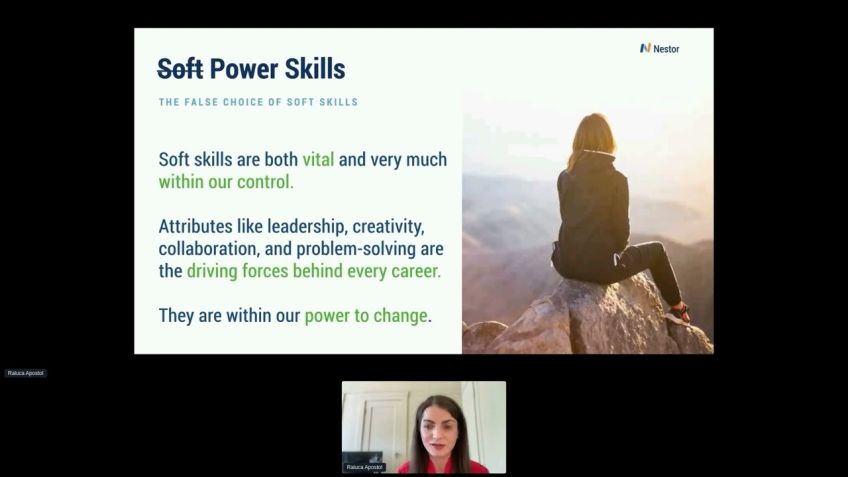
As the tech landscape continually evolves, women in tech face unique challenges and opportunities. Future-proofing a career in this dynamic field requires a blend of technical proficiency, soft skills, and a proactive approach to learning. This article delves into the essential skills women in tech need to stay ahead, drawing insights from community contributors Gunjan Paliwal, Product Marketing Lead at Meta; Amy Forsee, Enterprise Architect at the State of Missouri; and Sripada Manasa, Cybersecurity Instructor, supplemented with extensive external research.
Technical Proficiency: Mastering the Core Competencies
Sripada Manasa, a Cybersecurity Instructor, emphasizes the critical importance of cybersecurity skills. She advises, "If you’re a woman in tech aiming to future-proof your career, diving into cybersecurity is a brilliant move. With cyber threats on the rise, the demand for skilled cybersecurity professionals is booming."
Manasa provides a roadmap for mastering cybersecurity:
Master the Basics: Understand data travel across networks (TCP/IP) and become comfortable with different operating systems like Windows, Linux, and macOS.
Get Hands-On with Tools: Familiarize yourself with cybersecurity tools such as firewalls, intrusion detection systems (IDS), and encryption software. Tools like Wireshark, Metasploit, and Nessus are excellent for practical experience.
Stay Updated: Follow cybersecurity news, join online communities, and consider certifications like CISSP or CEH.
Develop Soft Skills: Communication and problem-solving are crucial. Explaining complex concepts to non-techies and working well under pressure are key components.
This comprehensive approach aligns with industry trends, where the demand for cybersecurity skills is growing rapidly. According to a report by Cybersecurity Ventures, there will be 3.5 million unfilled cybersecurity jobs globally by 2025, emphasizing the need for skilled professionals.
Soft Skills: The Unsung Heroes of Tech Careers
Amy Forsee, an Enterprise Architect at the State of Missouri, brings attention to the importance of adaptability and continuous learning in tech careers. She states, "Adaptability and continuous learning are so critical to a career in tech. As an Enterprise Architect with over 30 years in my career, I have seen technology change so rapidly. Keeping up with the changes allows you to stay relevant in technology. You must always stay curious and adaptable."
Forsee elaborates on the benefits of continuous learning:
Innovation and Efficiency: Keeping your knowledge base fresh with new techniques and updated tools helps in being innovative and providing solutions faster and cheaper.
Career Advancement: Continuous learning opens up opportunities for promotions and higher-paying positions.
Work Fulfillment: Engaging in continual learning can make work more fulfilling and prevent burnout by keeping the mind stimulated and challenged.
Soft skills are increasingly recognized as critical for success in tech roles. The ability to communicate complex technical concepts to non-technical stakeholders, collaborate effectively in diverse teams, and exhibit leadership qualities are all vital. A study by LinkedIn highlights that 92% of talent professionals and hiring managers say that soft skills are equally or more important than hard skills.
Essential Soft Skills:
Communication: Clear and concise articulation of ideas
Collaboration: Working effectively in team settings
Leadership: Guiding teams and projects towards successful outcomes
Continuous Learning: Embracing a Growth Mindset
Gunjan Paliwal, Product Marketing Lead at Meta, emphasizes the significance of a growth mindset and continuous learning. She shares, "Have a growth mindset and focus on continuous learning: Embracing a growth mindset and a commitment to lifelong learning empowers women to stay updated with emerging technologies, acquire new skills, and adapt to evolving industry trends, future-proofing and ensuring their long-term career success in tech."
This perspective aligns with the broader industry shift towards continuous professional development. Online platforms like Coursera, edX, and Udacity offer a plethora of courses that allow tech professionals to upskill in their own time. Moreover, many companies now provide learning and development programs as part of their employee benefits.
Strategies for Continuous Learning:
Online Courses: Utilize platforms like Coursera and Udemy for self-paced learning.
Certifications: Obtain industry-recognized certifications in specialized areas.
Workshops and Conferences: Attend events to network and learn from industry experts.
Networking: Building a Supportive Community
Networking is a powerful tool for career advancement, and Amy Forsee underscores its importance: "Building a network of mentors and peers can provide support, guidance, and opportunities for growth."
Research supports the notion that women who actively network are more likely to advance in their careers. Professional networks, both online and offline, offer platforms for women to connect, share experiences, and access mentorship.
Conclusion
Future-proofing a career in tech demands a holistic approach that encompasses both technical and soft skills. As emphasized by contributors Gunjan Paliwal, Amy Forsee, and Sripada Manasa, continuous learning, effective communication, and emotional intelligence are crucial. By embracing these skills and strategies, women in tech can navigate the ever-changing landscape and achieve long-term success.
Contributor Acknowledgment
We extend our gratitude to Gunjan Paliwal, Product Marketing Lead at Meta; Amy Forsee, Enterprise Architect at the State of Missouri; and Sripada Manasa, Cybersecurity Instructor, for their valuable insights and contributions. Their perspectives not only enrich this discussion but also inspire women across the tech industry to strive for excellence and continuous growth.
If you wish to further contribute to the topic, you can provide your insights here. Explore all community article topics here.




